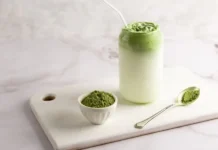Over 1.9 billion adults worldwide are overweight. Of these, about 650 million are obese.
In fact, worldwide obesity has nearly tripled since 1975. In many cases, sugar is to blame.
Instead of letting sugary sweets impact your health this year, consider adding these 10 sugar alternatives to your diet. Using sweetener alternatives can help you satisfy your sweet tooth. Meanwhile, you won’t have to worry about packing on extra pounds.
Otherwise, obesity can impact your risk of cardiovascular disease, type 2 diabetes, and other serious conditions.
Don’t let your sweet tooth have a lasting impact on your health. Instead, start adding these 10 sugar-free sweeteners to your routine today!
Xylitol
Xylitol is an alcohol sugar. Its sweetness level is similar to table sugar. Xylitol is extracted from birch wood or corn.
It’s also found in many fruits and vegetables.
Xylitol offers about 40% fewer calories than sugar. It also lacks fructose. Fructose is the ingredient associated with many of sugar’s harmful effects.
Using sugar alternatives like xylitol could help you avoid high insulin or blood sugar levels.
Xylitol is also associated with health benefits. For example, it might benefit your dental health. It could benefit your bone health, too.
Though it’s generally well-tolerated in humans, it can become toxic to dogs. If you have a dog, make sure to keep xylitol beyond their reach.
Stevia
As you explore different alternatives to sugar, consider plant-based sweeteners. For example, you might consider trying stevia this year.
Stevia is extracted from the leaves of a South American shrub that’s also called Stevia rebaudiana.
The leaves from this plant are full of phytochemicals and nutrients. In fact, stevia could provide a few health benefits beyond weight loss.
For example, stevia might help keep your blood sugar levels in check if you have diabetes. It could help lower insulin and glucose levels, too.
Meanwhile, stevia could help keep you satisfied and full after a meal.
Stevia might also help you manage your cholesterol levels.
Sugar-free sweeteners made from stevia are often extracted from one of two compounds: rebaudioside A or stevioside. Both contain zero calories. Though they taste a little different from sugar, they’re about 350 times sweeter.
Though stevia is generally considered safe, there’s a chance the raw stevia herb could impact your cardiovascular system. It might impact your reproductive system and kidneys, too. We need more research to know the potential risks associated with stevia.
You can use stevia in place of table sugar for coffee, tea, baked goods, and other recipes. Consider using about half as much stevia for the total amount of sugar in your baking recipes. Remember, stevia is sweeter than table sugar.
Monk Fruit
Monk fruit sweetener is extracted from a small round fruit grown primarily in Southeast Asia. It’s about 100 to 250 times sweeter than sugar. Like many natural sugar alternatives, it has zero calories.
Monk fruit contains natural sweeteners, including glucose and fructose. It gets its sweetness from antioxidants like mogrosides, though.
Mogrosides have anti-inflammatory properties. Switching to monk fruit sweeteners could reduce your daily calorie intake. It might reduce your insulin and blood glucose levels, too.
You can give this monkfruit sweetener a try as you add these delicious, sugar-free alternatives to your diet.
Yacon Syrup
Yacon syrup comes from the yacon plant. This plant (Smallanthus sochifolius) is found in South America.
Yacon syrup contains about 50% fructooligosaccharides, a sugar molecule the human body can’t digest.
Erythritol
As you explore these sugar alternatives, you might find some taste better than others. You might need to find a few sugar-free sweeteners to find one you prefer.
Erythritol is another sugar alcohol. It contains fewer calories than xylitol, though. In fact, erythritol contains 6% of the calories of regular sugar.
Many people say it tastes almost exactly like sugar, too.
Your body doesn’t possess the enzymes to break down the majority of erythritol, though. Most of the erythritol you consume is absorbed directly into the bloodstream. Then, it’s excreted through urine.
Erythritol doesn’t cause the side effects associated with regular sugar. For example, it won’t boost your:
- Insulin levels
- Blood sugar levels
- Cholesterol levels
- Triglyceride levels
Remain wary, though. In one study, students without obesity who had higher erythritol blood levels had increased fat mass and weight gain. We need more research to determine erythritol’s effects on body composition.
Coconut Sugar
Coconut sugar is extracted from coconut palm sap. It contains potassium, calcium, zinc, iron, and antioxidants. It also has a high inulin content.
Inulin is a soluble fiber that can slow digestion. It could feed the healthy bacteria in your gut while increasing feelings of fullness, too.
Maple Syrup
As you experiment with these alternatives to sugar, consider a familiar alternative like maple syrup.
Maple syrup contains zinc, iron, manganese, and potassium. It contains antioxidants, too. Antioxidants can help your body fight free radicals.
Maple syrup also contains oligosaccharides, which could lower plasma glucose concentrations.
Honey
Honey is abundant in antioxidants, vitamins, and minerals. The flavonoids and phenolic acids in honey could prevent cancer, heart disease, inflammation, and diabetes.
Using honey among these sweetener alternatives might decrease your glucose levels and weight. Consuming honey is associated with reduced hyperglycemia.
We need more research to determine honey’s range of health benefits, though. Avoid consuming honey excessively.
Molasses
Molasses is made by boiling down sugar beet juice or sugar cane. It contains antioxidants, iron, potassium, and calcium. These vitamins and minerals might benefit your heart and bone health.
Since molasses is still a form of sugar, consider limiting your consumption.
Agave Nectar
Agave nectar is produced from the agave plant. However, it consists of 85% fructose. That’s higher than normal sugar.
High amounts of fructose are associated with obesity and other health issues.
As you try these sugar-free sweeteners, try to keep everything in moderation.
The Sweeter Side of Life: 10 Sugar Alternatives to Use This Year
You don’t have to rely on table sugar to satisfy your sweet tooth. Instead, give these 10 sugar alternatives a try. You can add these sweetener alternatives to your smoothies, baking recipes, and other favorite dishes.
On the hunt for more useful advice? We can help!
Check out our latest guides today for more helpful tips and tricks.



































































